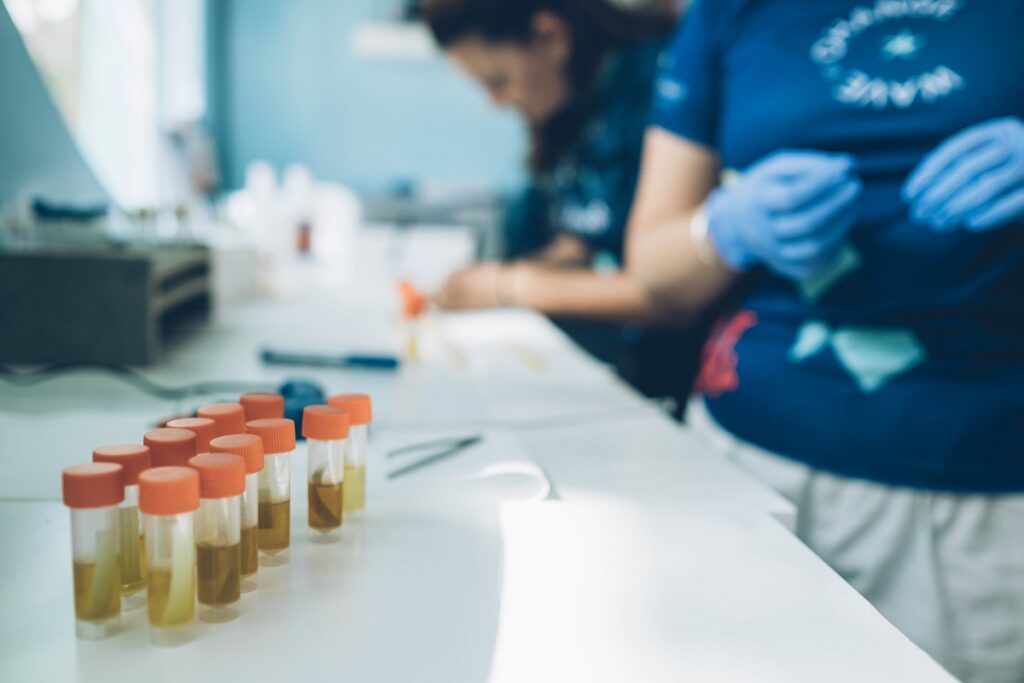As World Oceans Day approaches, we take time to reflect on the importance of the oceans in our lives. Many were calling this year the “super-year for the oceans,” and though many of the milestones and conferences that made it so might have been postponed, we want to take a moment and reflect on the influence our oceans have.
For World Oceans Day, we want to share four important reasons we are in love with the ocean: health, connection, exploration and evolution.
Health: Scientific inquiry will play a critical role in helping us discover a vaccine for COVID-19, yet the very scientific process that helps us establish new medicines and vaccines depends, in part, on the ocean. A very basic tool we use to develop all medicine is a simple protein that acts as the light switch for finding out whether molecular experiments are effective. Specifically, the Green Fluorescent Protein came originally from a hydrozoa jellyfish called Aequorea victoria and now helps millions of scientists assess successful gene transfer and gene expression which is fundamental for the replication of vaccines.
Further, the ocean is thought to be the next frontier for medicine. While focus in previous years was on creatures that live in shallow, tropical waters, new studies are looking into the incredible deep-sea organisms that have adapted to a cold, highly-pressurized environment. Scientists hope the adaptations found in this extreme life will allow us new discoveries and cures to some of the world’s leading causes of deaths like cancer or heart disease.

Connection: The ocean provides a place for us to connect to our origin, and not only realize that all humans evolved from a common ancestor, but that all life itself is connected by a common ancestor in our oceans. Even further, the ocean physically connects continents and cultures around the globe. It’s the great roadway of trade and commerce, the place where wild animals make some of the longest journeys we know of on the planet.
The ocean connects us all, and we understand the importance of protecting it. We are working, through our Wave of Change program, to improve the health of the oceans that surround our properties.
Exploration: All that medicine, from just a fraction of the diversity of life present from the ocean. Scientists are still looking into other areas of the ocean to discover new life (because we still don’t know all of the life that is contained within the ocean). For what we have discovered, we know 90% of the habitable space on earth is in the ocean and is 30% more phylogenetically diverse than life on land. We’re losing that diversity at a record pace.
The ocean also represents one of the last unexplored frontiers on the planet. We know more about the surface of the moon and the structures of distant stars than we know about our own seafloor. This is one of the reasons why the UN Decade for the Ocean and the Global Compact Five Tipping Points for the ocean all focus on mapping the global ocean. By doing so, with healthy relationships with the environment in mind, we may find new resources to help us sustain a growing population while solving major climate challenges in the process.
Evolution: It is truly incredible that we know so little about the place where life is oldest on the planet. Life began feeding from the Earth’s chemical energy from hydrothermal vents on the ocean floor. The first forms of life came as single-celled organisms over 4 billion years ago, no more complex than bacteria. Yet through incredible evolution originating from the ocean, life has grown to the incredible diversity and complexity of what we see today.
In the ocean, life remains the most diverse and most extreme. This extreme life has inspired biomimicry solutions in engineering that create, for example, more efficient propellers and wind turbines modeled after whales fins and antimicrobial film that models itself after sharkskin.
At Iberostar, our Wave of Change movement is continually working to protect the beautiful oceans that surround our properties, even in this time of crisis.
For us, this is personal. The ocean offers a vast number of ecosystem services worth protecting. The oceans are one of the last unexplored frontiers on the planet, and it is our job to protect it.






